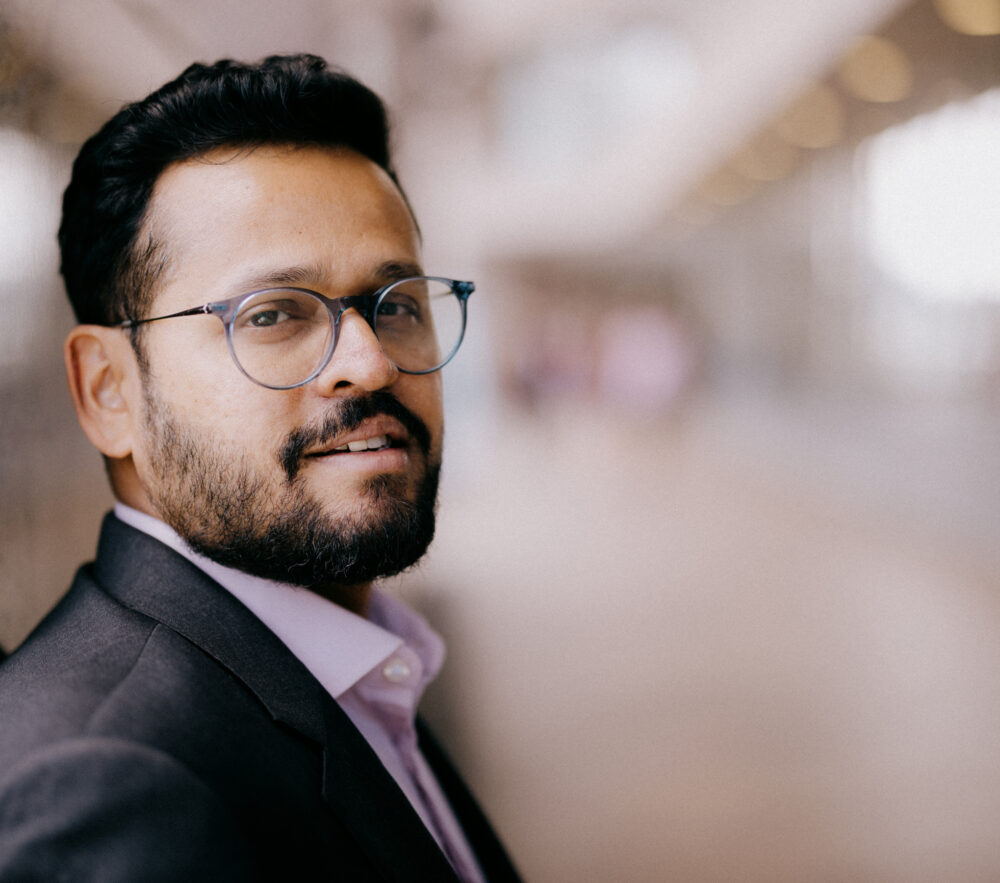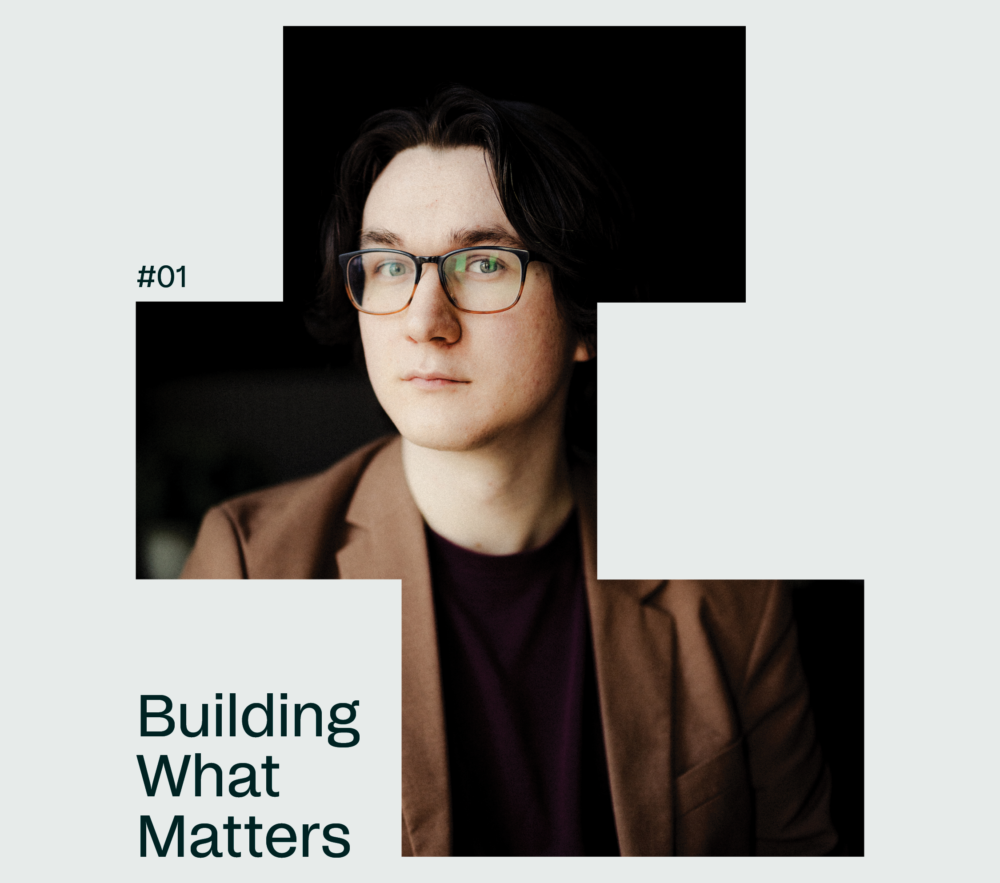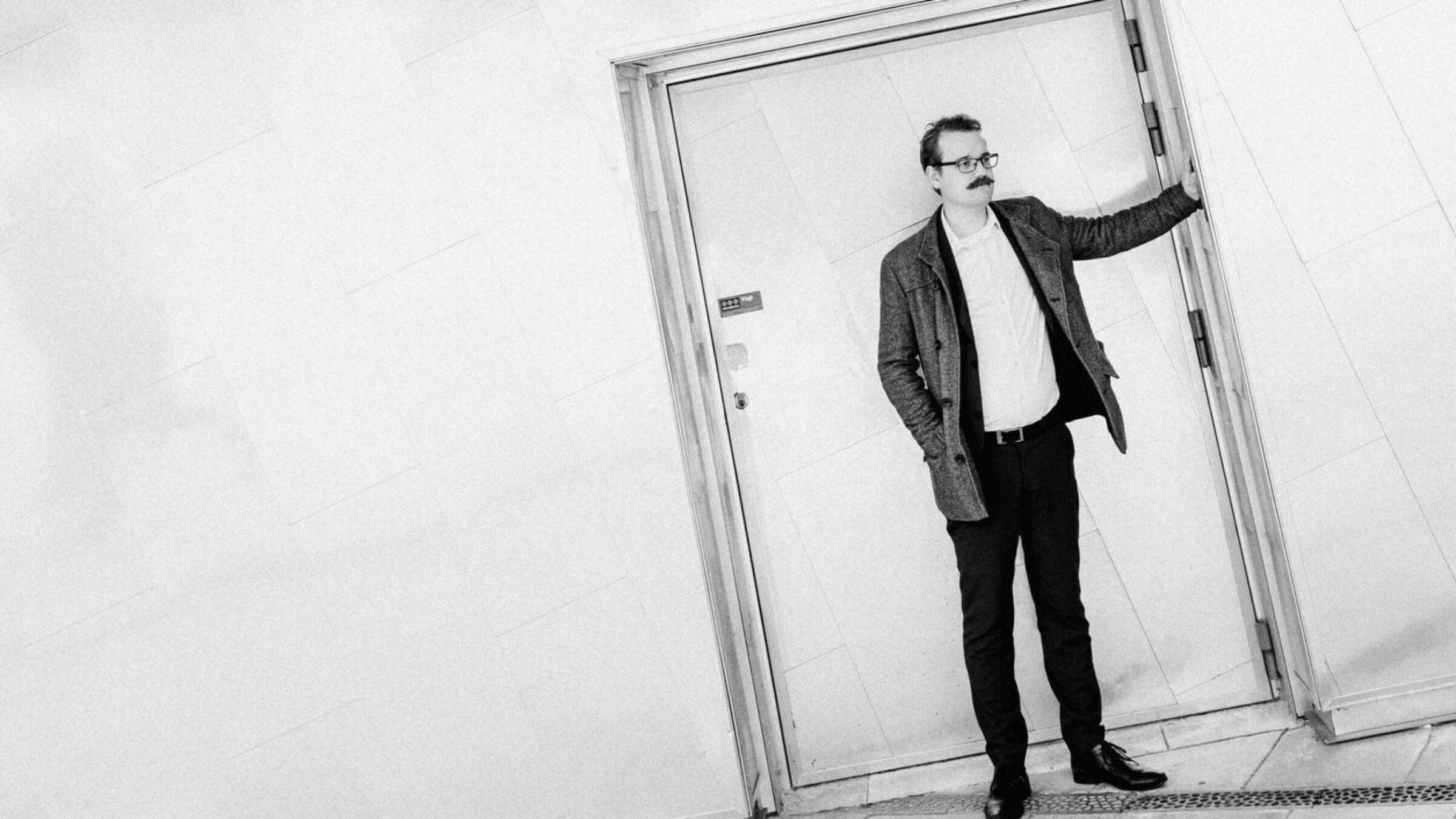
»My school buddies used to call me The Professor«
Mathias Nysom Flohr reflects on his journey from small-scale video game programming to leading the technical development of Netcompany’s AI solution, EASLEY AI.
The text above describes a game Mathias Nysom Flohr designed and built when he was still in primary school. The hard disk that once stored that game is now long gone. Today, the only physical manifestation is on an old compact disk which is by now so chemically deteriorated that the game likely cannot be played at all – except, of course, in the mind of its 29-year-old creator.
»It’s probably the game I’m most proud of«
Mathias Nysom Flohr
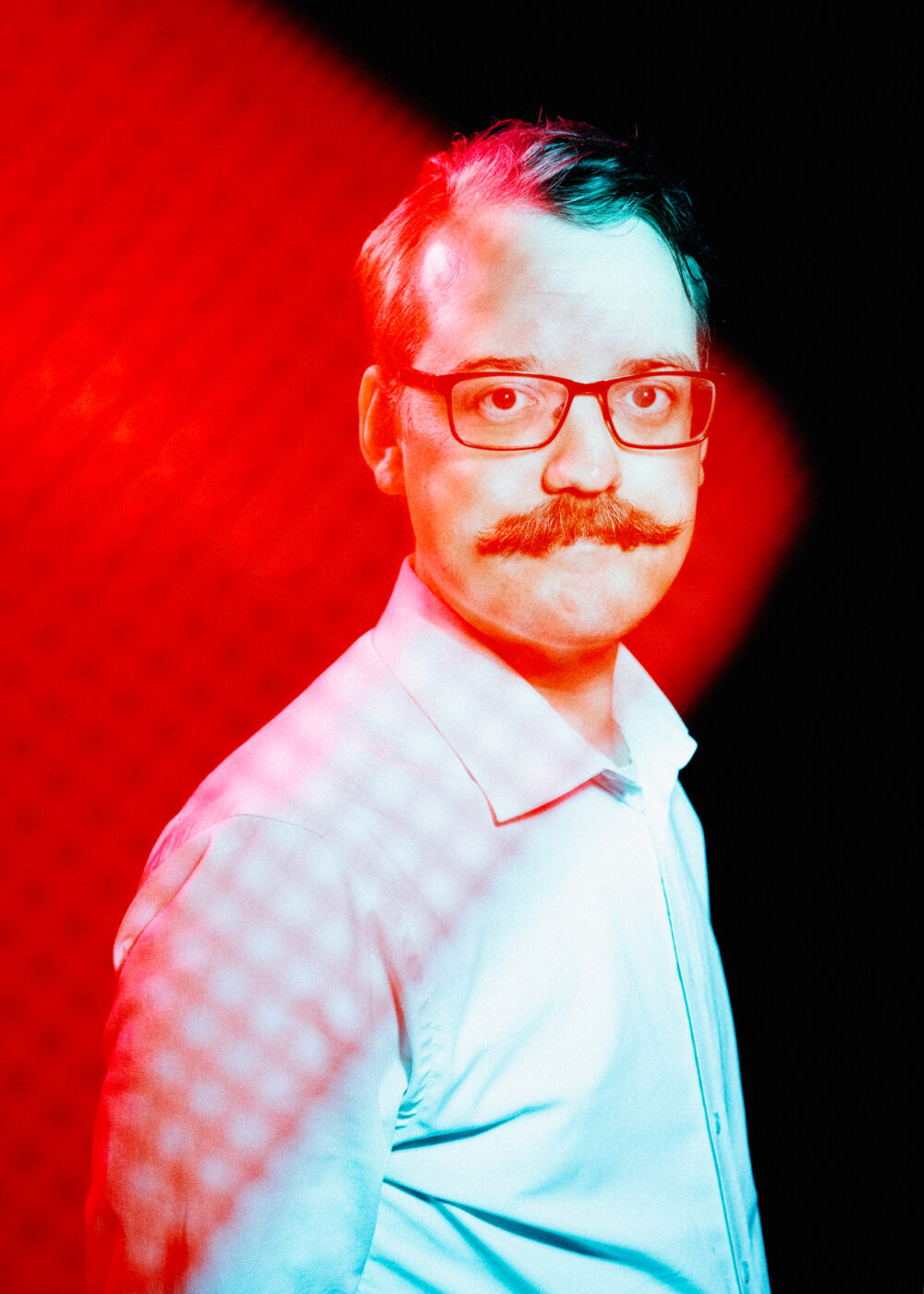
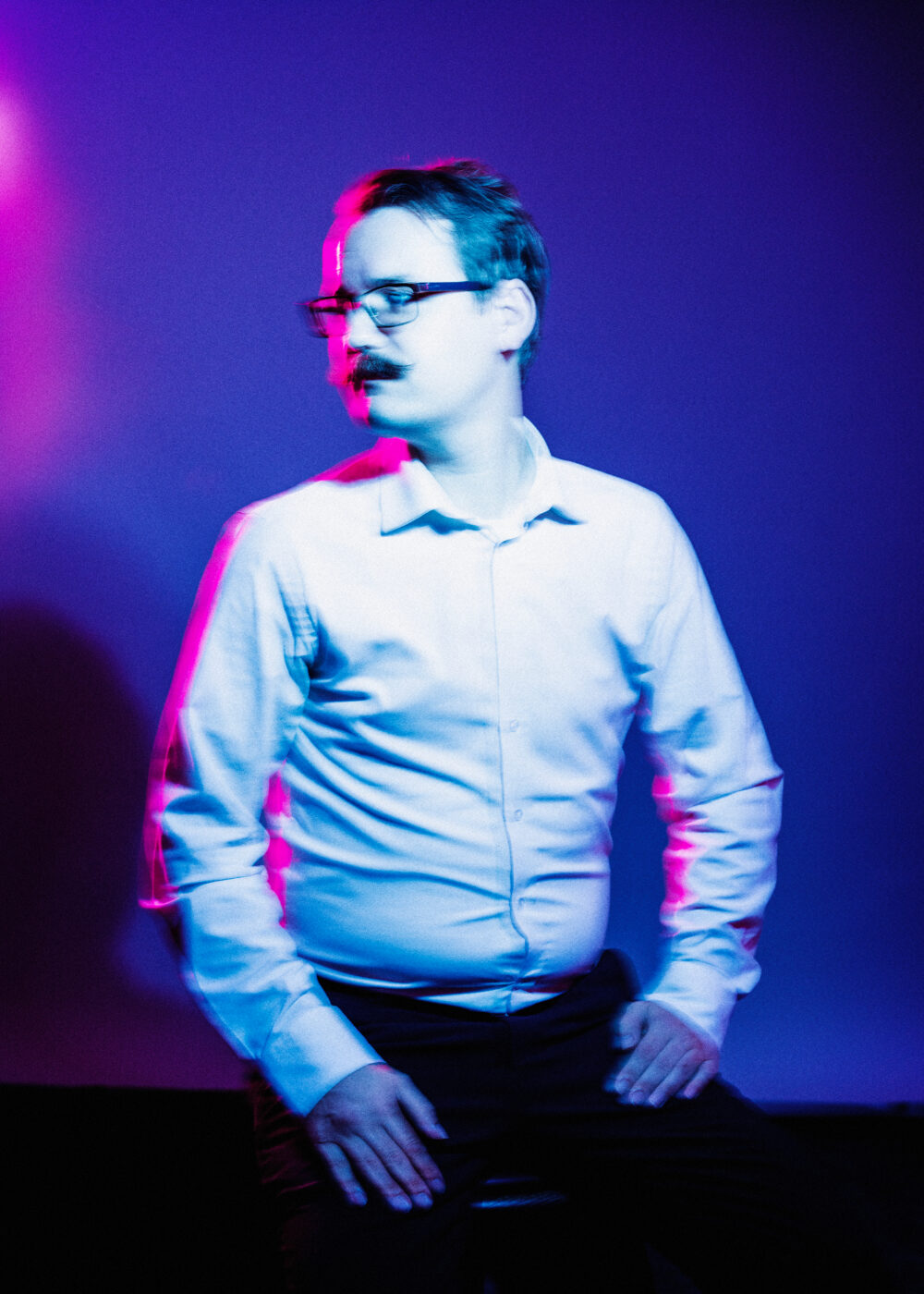
The professor
»My school buddies used to call me The Professor because I always solved problems and fiddled with things«, Mathias says.
In the 7th grade, Mathias watched the Danish TV-show Troldspejlet, and their gaming school Spilskolen instantly hooked him.
»In Spilskolen, kids could make games using a simple ‘drag and drop’ functionality, but I quickly figured out I could make more advanced games by writing code«.
»The first game I made was called Bear Star. Then I made a game with two stick figures – a Tekken like two-player game with stick figures. And then I made the game with the fly and the flyswatter«.
Mathias continued to fiddle with computers and games. In high school, he built a simple chatbot, inspired by existing chatbots, hoping he could improve on them.
»It was just a bunch of if-statements. You could ask it if it had a good day, but that was just about it. Still, I thought the idea of controlling a computer with natural language was immensely interesting«.
»I thought the idea of controlling a computer with natural language was immensely interesting«
Mathias Nysom Flohr
Next to his studies, Mathias worked on a bunch of small IT projects – an IT-system for the interactive horror labyrinth, Dystopia, a boardgame for a gaming studio in Aalborg, and an app to register dimensions and models on windows so they could be more easily ordered from a construction company.
As for his education, Mathias also stayed firmly on the generalist track, always keeping options open.
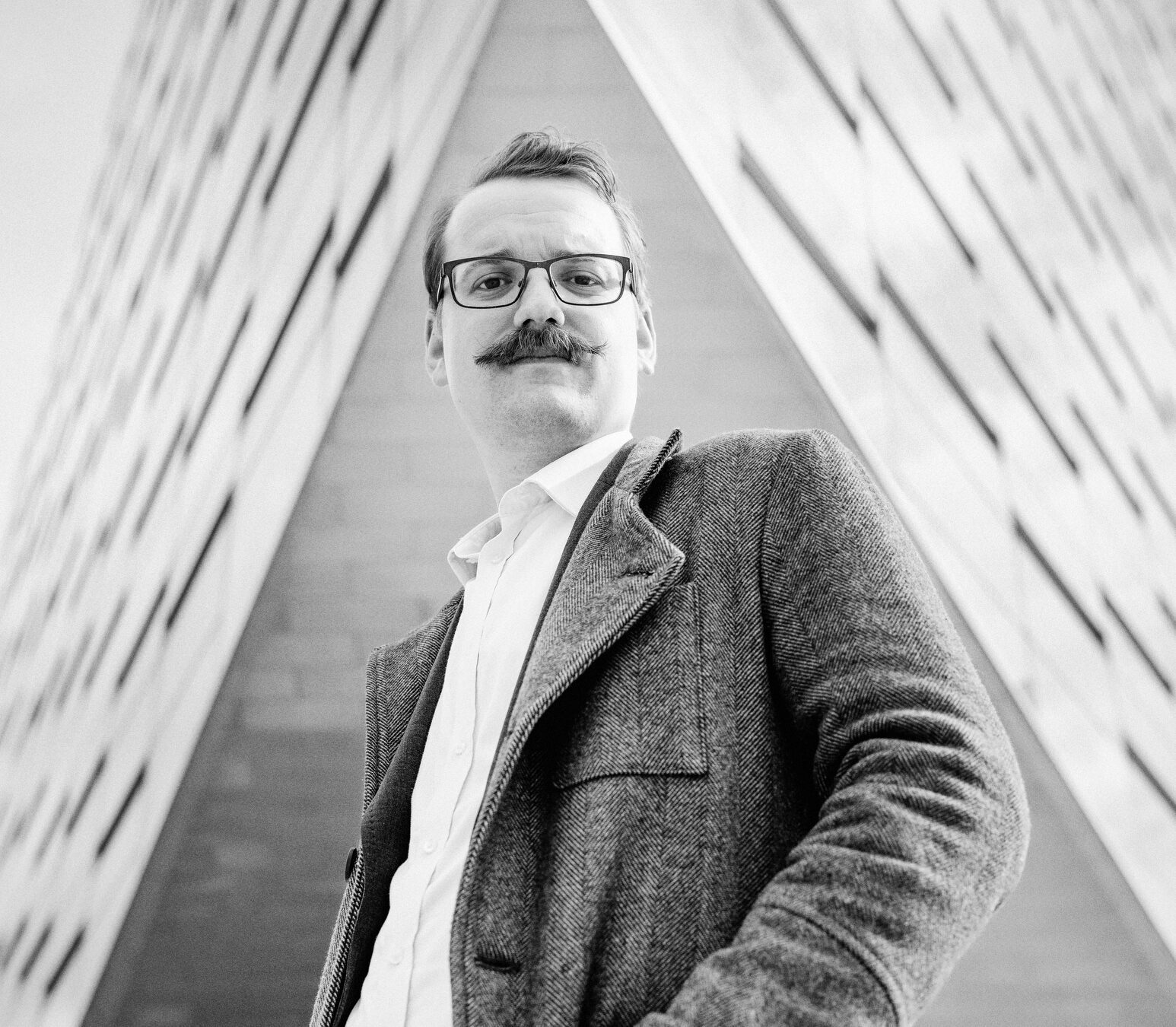
The professor applies for a PhD
Mathias switched from a BA in Informatics to the more general BA in IT in Aalborg, while turning to an even more general MA in Aarhus: ITCO, which stands for IT, Communication and Organisation. He then applied for a PhD on a topic as broad as convergence in IT strategy, business strategy, and knowledge strategy.
»They rejected my proposal because it was too general«, Mathias recounts.
At the same time, Mathias saw a job ad for Netcompany, and realised this was the company that had built Borger.dk, Denmark’s citizen portal.
»I thought, ‘this is something I haven’t done before.’ This isn’t micro-software, but society-critical solutions«.
Mathias’ plan was to work for Netcompany until his second PhD proposal was accepted. In 2018, he was hired and put on a project related to Denmark’s Address Register.
»Back then, I hardly knew how to debug properly. But they showed enormous confidence in me«.
In just a few months, Mathias was appointed Team Lead, and he started wondering if his plan of re-applying for a PhD was the right career choice.
»When I finally made the decision to stay at Netcompany, I set myself a very clear goal – I wanted to become a manager before the age of 30«.
»When I finally made the decision to stay at Netcompany, I set myself a very clear goal – I wanted to become a manager before the age of 30«
Mathias Nysom Flohr
Easley AI and the road to personalised artificial intelligence
Today, Mathias is a manager at Netcompany at the age of 29. He is also the lead on Netcompany’s AI project, Easley AI, named after the African-American computer scientist Anne Easley who started her career by performing complex mathematical calculations at NACA, NASA’s predecessor, but quickly moved on to computer programming when computers arrived to take her job. Easley smartly evolved alongside technology – and Easley AI does as well.
»Easley AI takes in a user request and prepares it in such a way that when it is sent to the AI model, eg. GPT-4, it gives the best possible answer«, Mathias says.
Easley AI is still young – initially, it is used to drive up quality control and efficiency through easy information access, automated code review, and generation of automated tests. In the future, Easley AI will help write documentation and even generate code components.
»It’s the first time the knowledge sector is being automatised, which is an exciting thing to contribute to, but we should remember that there are limitations to the model. You must guide it carefully, and we humans are still fully responsible for the end product. When new AI models arrive, it seems like they can do everything, but then you start to see all the things that they cannot do«, Mathias says.
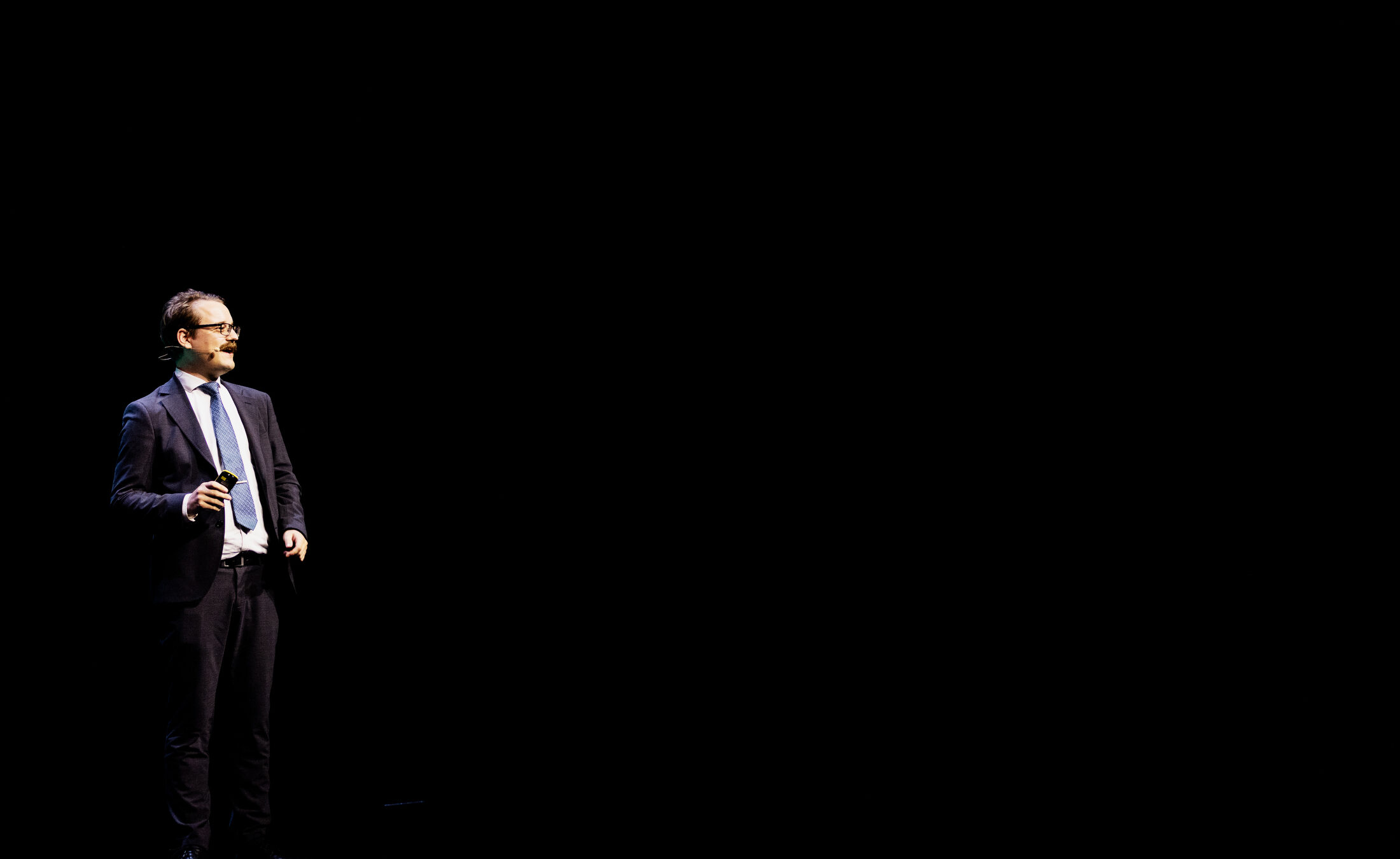
In Forum, Copenhagen. Mathias presents his vision of Easley AI for thousands of Netcompany employees.
In some ways, working full-time on a single project, Mathias’ work life has finally settled.
In other ways, Mathias refuses to stay in one lane. While at work, he combines technical, focused work with a more generalist track of leading people, planning, and re-planning. Constantly, there is feedback between Mathias’ diversions and his more focused work.
»At home, I run Stable Diffusion, via Automatic1111’s model loader, on my Nvidia RTX 3090 graphics card, and then I use Llama-2 in Ooba Booga’s text-generation-webui, also on my RTX 3090. That’s probably why they asked me to build Easley AI«, Mathias said.
»A good friend and I also have a writer’s club together. We give each other feedback, and I’ve used my creative writing to make my corporate language clearer, and simpler«.
»In the story I’m currently writing, the character The Death of Old Age has been sent to take away the child Anthon. It’s an obvious bureaucratic error, which turns out to be a larger conspiracy started by Death’s leader to alter the power balance between the rulers of the cosmos«, Mathias explains.
While building Easley AI, Mathias’ story writing has been on pause, but the story isn’t done yet.
»With the first phase of Easley AI done, I think it’s time to start writing again.«
Explore more stories
In our stories, we trace a line from the world of bits and bytes to the lives and emotions of the humans that drive it.
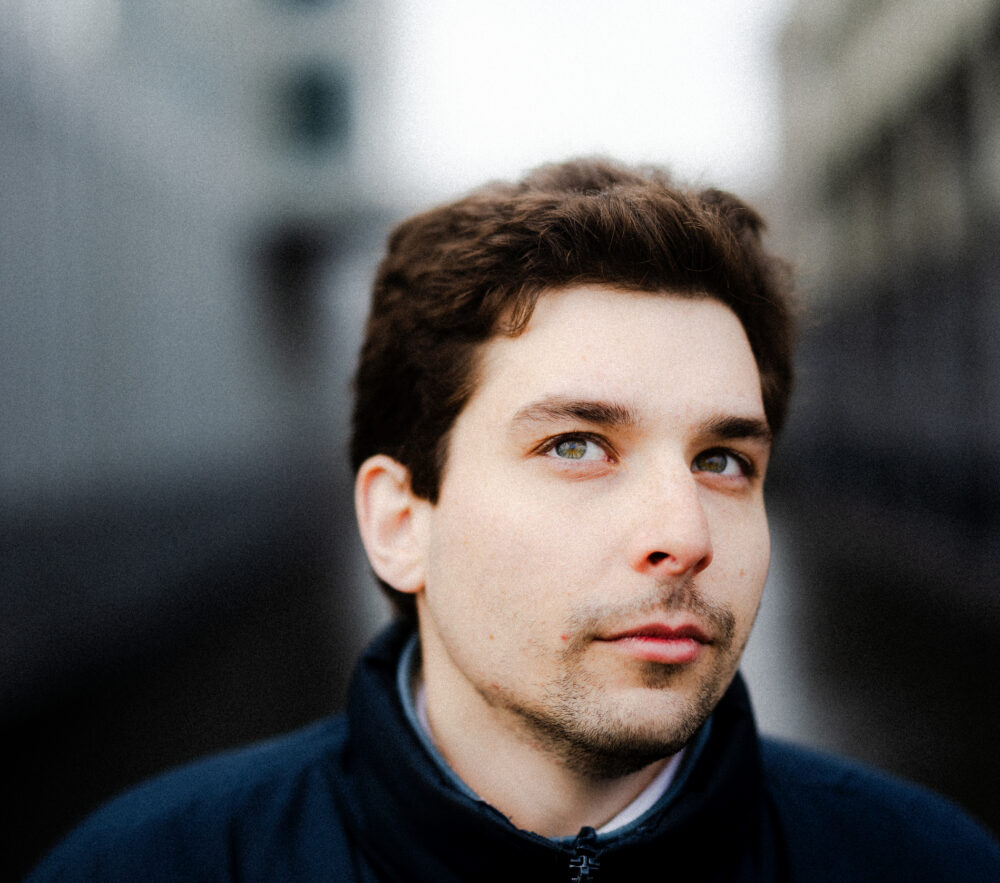
David Kliment on combining technical curiosity with people skills to deliver smarter digital solutions
»It’s not just coding. It’s creating an impact«
In our stories, we trace a line from the world of bits and bytes to the lives and emotions of the humans that drive it.
